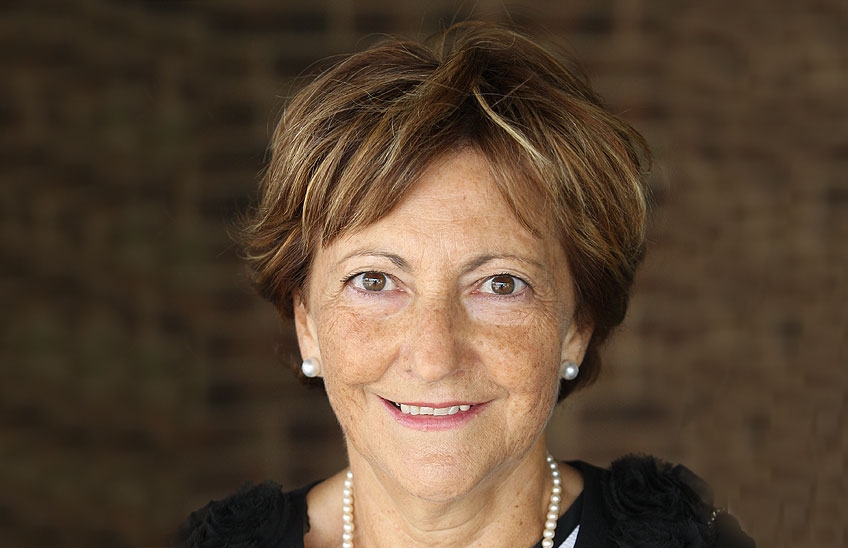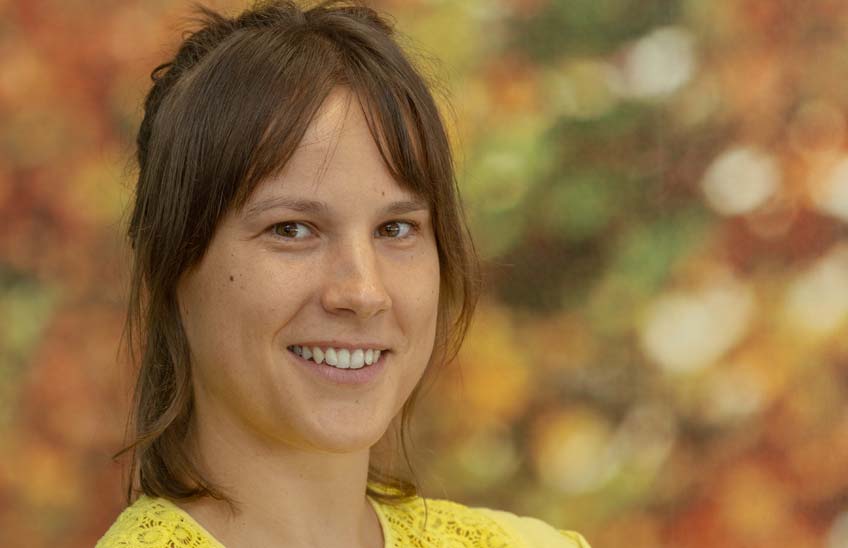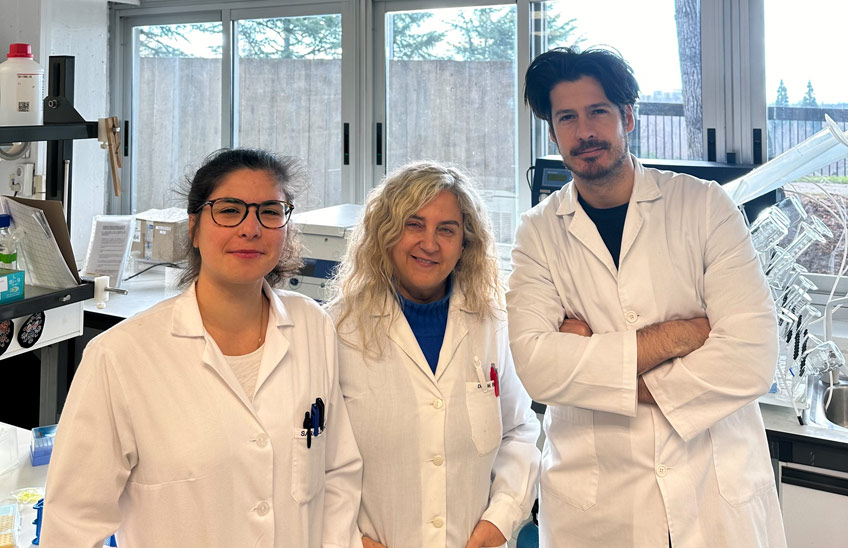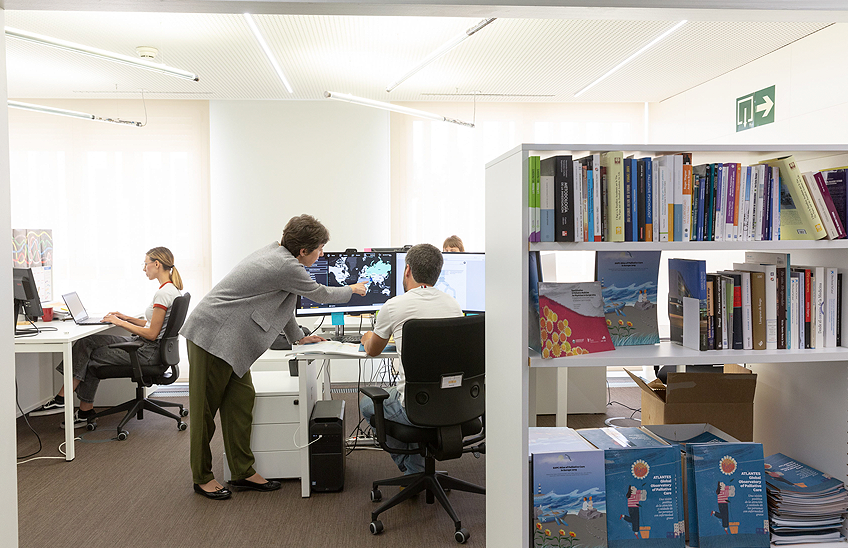New emerging addictions such as pornography, internet or the use of screens affect the most intimate part of the person.
This is explained by professors Elena Puerta and Miren Pardavila, directors of the Summer Course on Addictions offered by the University of Madrid.
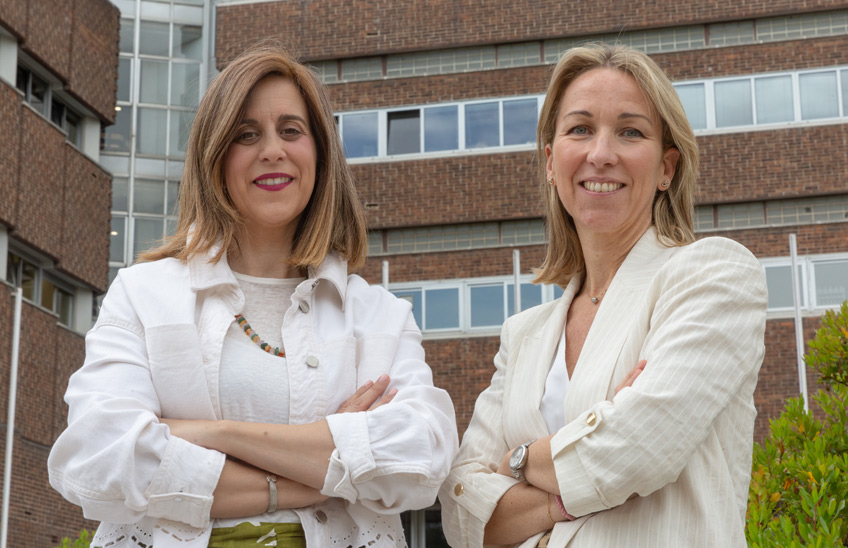
FotoManuelCastells
/Miren Pardavila and Elena Puerta directors of the summer course on Addictions.
05 | 07 | 2024
The beginning of the summer courses of the University of Navarra started with a topic of great social and health interest: addictions. Thus, on June 17, 18 and 19, this course was held under the direction of Professors Elena Puerta and Miren Pardavila, where topics related to one of the greatest challenges facing our society, such as the consumption and abuse of toxic substances and new forms of behavioral addiction, were discussed. Professor Miren Pardavila explains what was the trigger from which addictions began to be considered a problem in our society: "it was in the 80s when heroin consumption became a global pandemic and was denormalized because people were seen in very complicated social situations and this meant that, although addiction existed throughout history it was seen as a social problem" what happens today with "the new emerging addictions such as pornography, internet or the use of screens is that this social problem is not seen, it is masked because it is more a problem towards the most intimate part of the person, it affects the "how I want to be", "how I am" and "how I will be".
The purpose of the course was multiple, on the one hand it sought to reflect on the different types of addictions, the underlying causes and associated risk factors, on the other hand to train participants to be able to recognize the warning signs of addictions in themselves and others, to provide appropriate intervention guidelines as well as to explore how the community as a whole can play an active role in the prevention of addictions. "In the course we wanted to cover all addictions from the most classic to the most current, so over the three days we tried to make the course as comprehensive a program as possible" although she assures that "each of the topics addressed could be devoted to an entire course" says Professor Elena Puerta.
One of the highlights of the course and one that generated most interest among participants was the gender variable and how it affects women in a unique way. It is important to know that women usually start using substances for other reasons, often to avoid situations or traumas they have experienced, for example, mistreatment or sexual abuse, says Miren Pardavila. So as "the beginning is different, the process is different, the reasons for consumption are different, therefore the treatment has to be different, it is necessary to have a gender perspective in the interventions", clarifies Elena Puerta.
One of the particularities of the course is its approach multidisciplinaryIn fact, this course is partly the result of a project that both professors led and developed at campus of the University of Navarra with the goal that students from different Schools as nursing, architecture, design or communication worked on new forms of prevention of tobacco, alcohol and cannabis in the campus. In this sense, cinema took center stage since the course included the documentary on addictions "Gota a Gota" directed by the student Amaia Molinero and a docu forum was developed by the professor of the School of Communication Bienvenido León.

